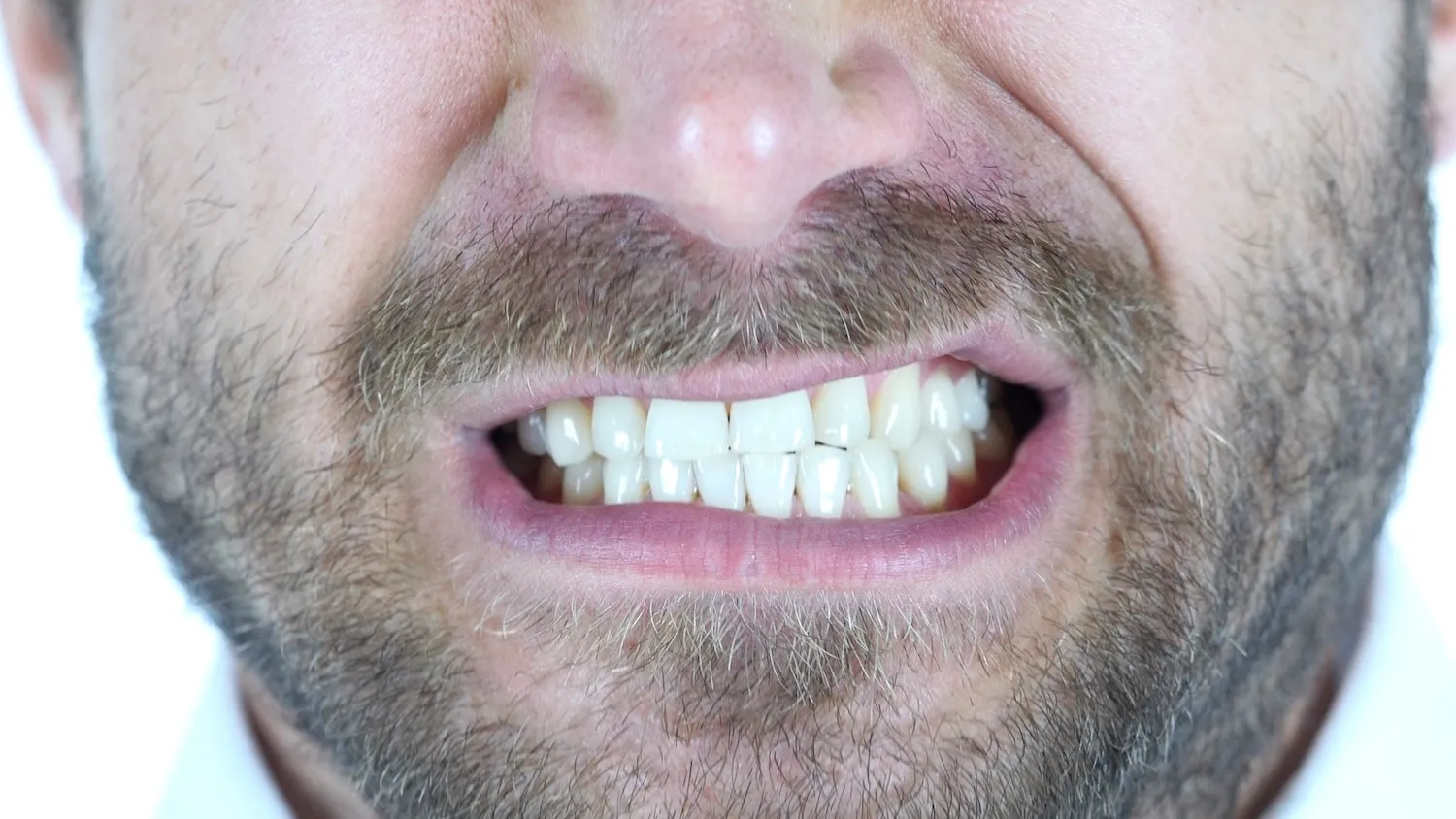What is Teeth Grinding (Bruxism)?
 Bruxism is an involuntary movement that involves clenching your teeth or moving them from side to side. Sometimes people will grind their teeth in their sleep while others will clench or grind their teeth during the day. This can cause damage to the teeth and jaw, as well as headaches and other symptoms. In some cases, stress or anxiety may be contributing factors.
Bruxism is an involuntary movement that involves clenching your teeth or moving them from side to side. Sometimes people will grind their teeth in their sleep while others will clench or grind their teeth during the day. This can cause damage to the teeth and jaw, as well as headaches and other symptoms. In some cases, stress or anxiety may be contributing factors.
What Are The Causes of Teeth Grinding (Bruxism)?
Teeth grinding is idiopathic, and there may not be one specific cause, but it can be related to an uneven bite, missing teeth, or stress and anxiety. Some people may grind their teeth as a result of genetics, while others may develop the habit due to an emotional response to things such as stress or pain.
What Are The Signs And Symptoms of Teeth Grinding (Bruxism)?
When you grind your teeth, you may have a sore or painful jaw. Excessive grinding can also contribute to broken or cracked teeth. Some patients may experience headaches and gum sensitivity as well. These symptoms can have a significant impact on a person’s quality of life and should be addressed by a dental professional.
What Are The Risk Factors of Teeth Grinding (Bruxism)?
The risk factors of teeth grinding or bruxism is that if left untreated, you may wear away or grind down the enamel of your teeth causing extensive dental procedures. It can also crack or cause chips in your teeth that will need to be fixed.
How is Teeth Grinding (Bruxism) Diagnosed?
Diagnosis of teeth grinding, also known as bruxism, typically begins with a thorough medical and dental history and physical examination. During the examination, your dentist may look for signs of tooth damage or jaw pain. Additional diagnostic tests, such as X-rays or a magnetic resonance imaging (MRI) scan, may be ordered if an underlying condition is suspected to be the cause of the bruxism. An accurate diagnosis is important for determining the most appropriate treatment plan.
What Are Possible Treatments For Teeth Grinding (Bruxism)?
There are a few treatments to help with teeth grinding. A night guard can be used to help with Bruxism. A custom night guard may be fabricated for use during sleep or whenever you clench or grind your teeth. This will help to protect your teeth from breaking down.
Are There Preventative Steps or Measures To Avoid Teeth Grinding (Bruxism)?
Preventing teeth grinding, also known as bruxism, can include things such as
Managing stress and anxiety: finding ways to manage stress, such as through exercise, relaxation techniques, or counseling, may help reduce the risk of bruxism.
Avoiding triggers: avoiding substances that may trigger bruxism, such as alcohol and caffeine, may help reduce symptoms.
Maintaining a healthier sleep pattern: establishing a regular sleep pattern can help prevent bruxism.
Using a mouthguard: wearing a dental splint or mouthguard at night can help protect the teeth from damage caused by grinding.
Seeing a dental professional: regular dental check-ups can help detect the early signs of bruxism and prevent any damage to the teeth and jaw.
What Are The Risks If Teeth Grinding (Bruxism) Is Left Untreated?
If left untreated, teeth grinding may cause your teeth to wear down prematurely, causing nerves to be exposed. Sometimes bruxism may cause teeth to crack or break which may lead to fillings or crowns. Getting treatment for teeth grinding early on will help avoid these issues in the future.
Recommended Next Steps For Teeth Grinding (Bruxism)
If you suspect you may be grinding your teeth or clenching your teeth, you can talk with your doctor to see the extent of your condition and see if a custom night guard may be right for you.
